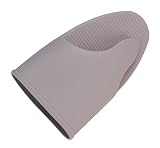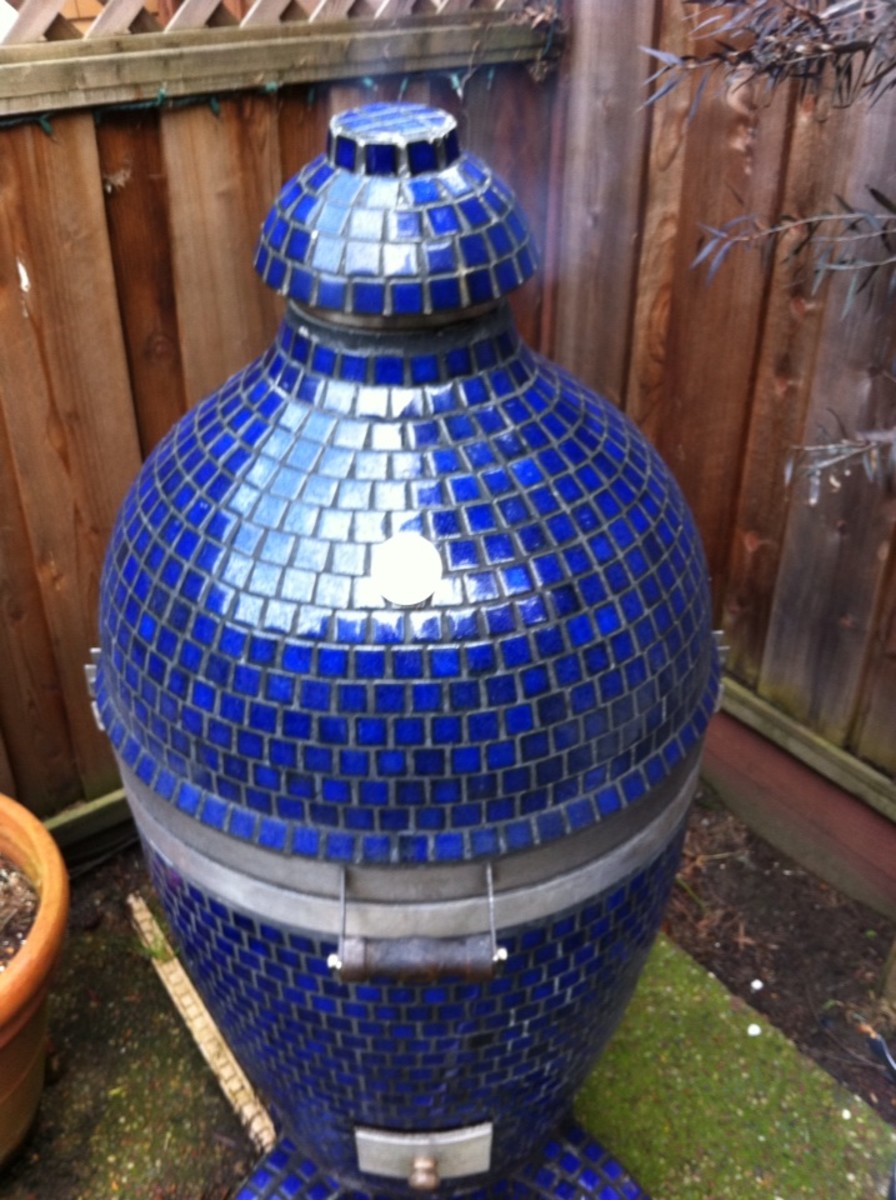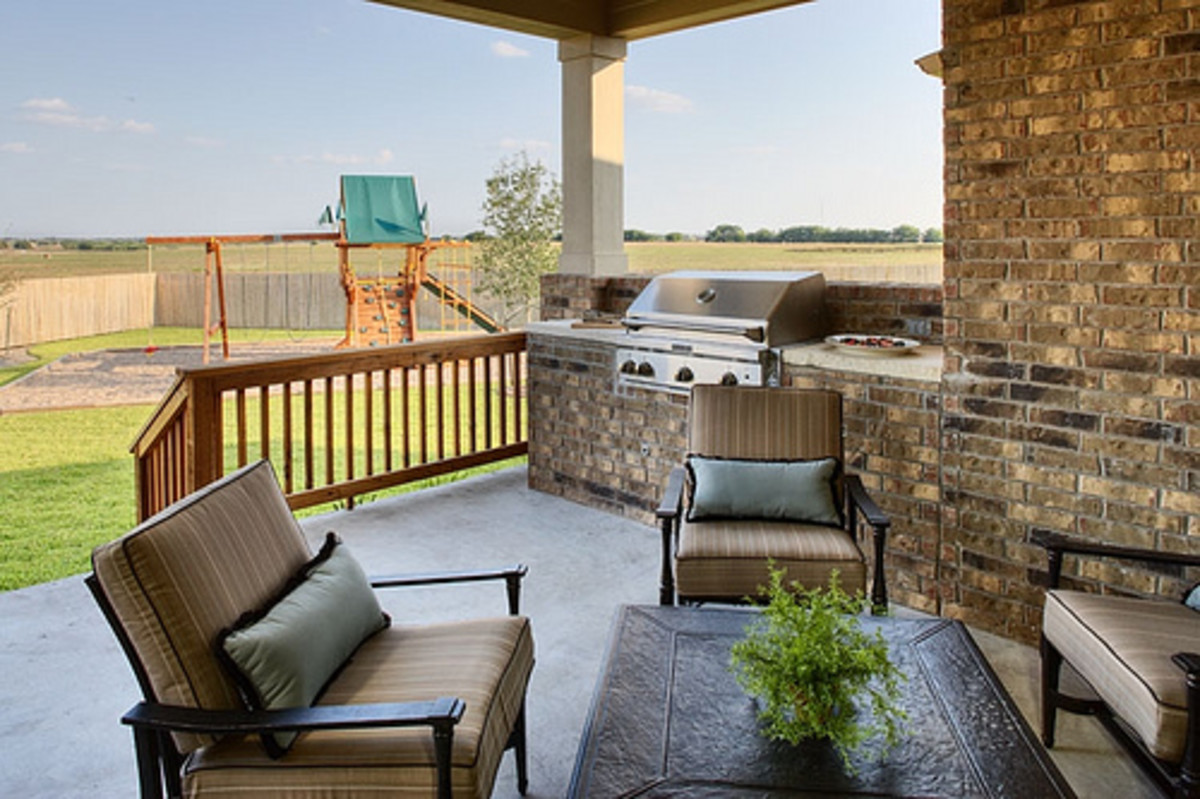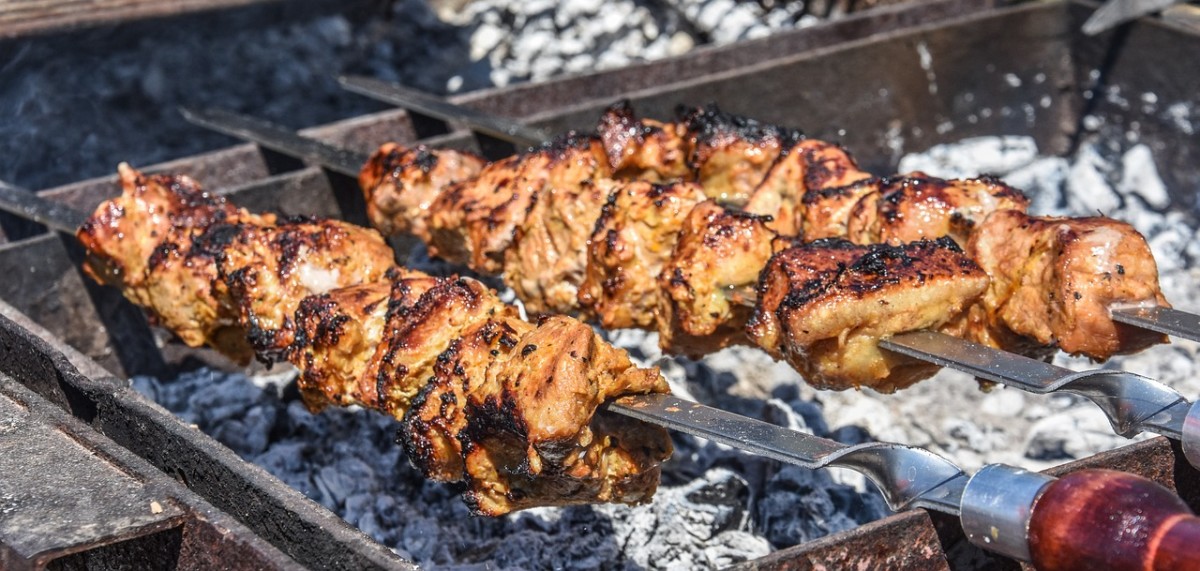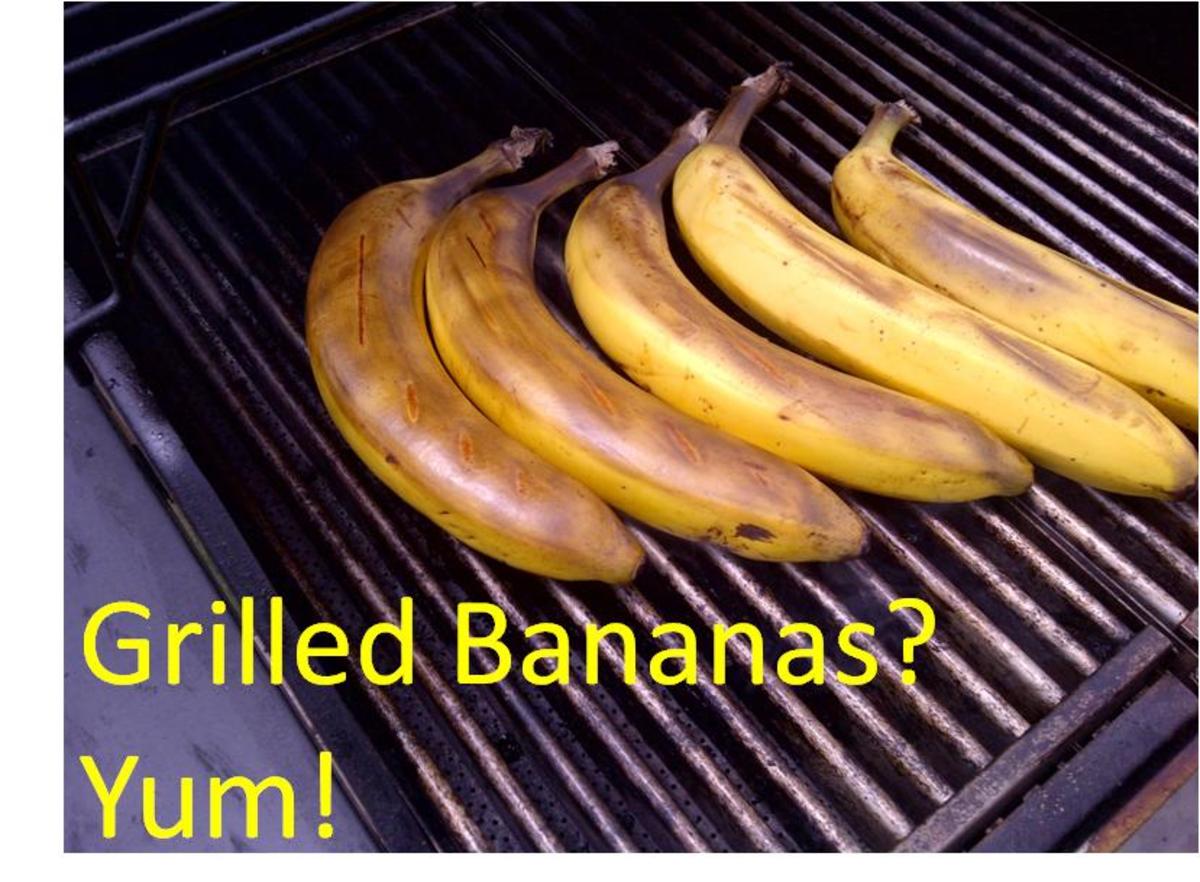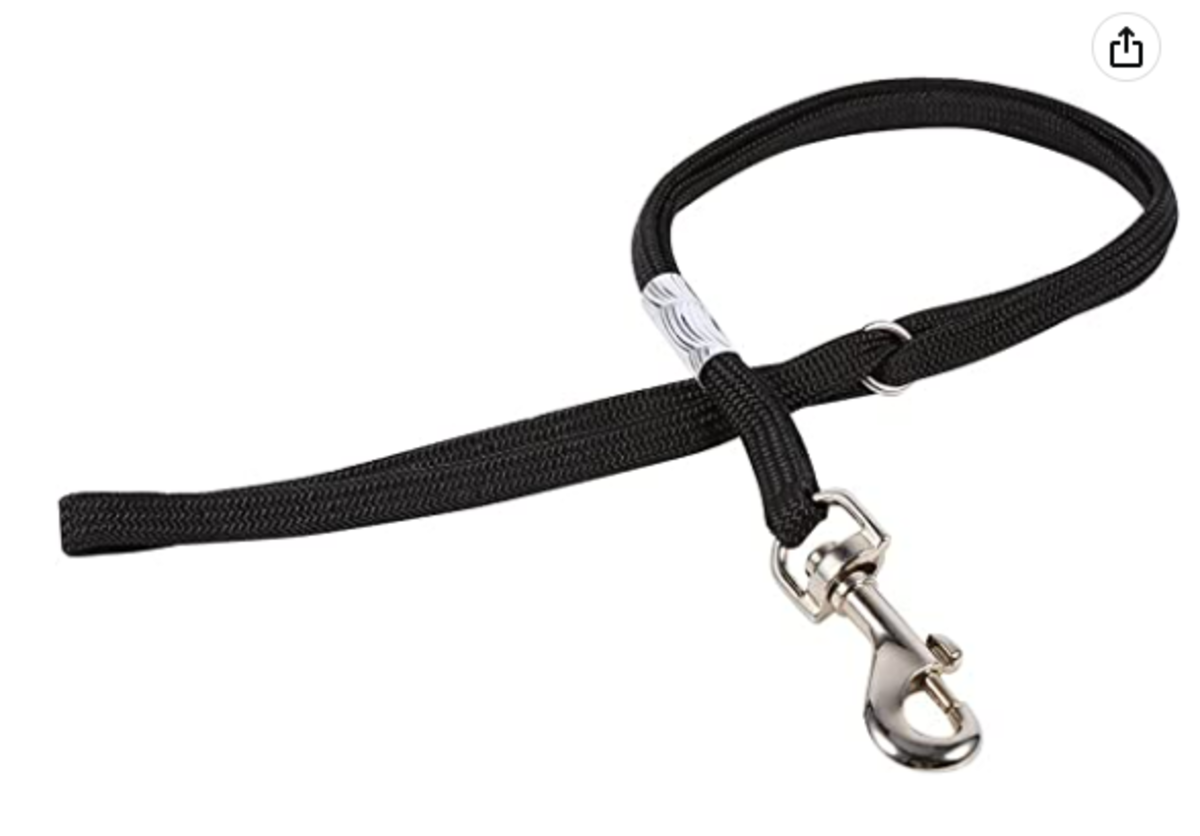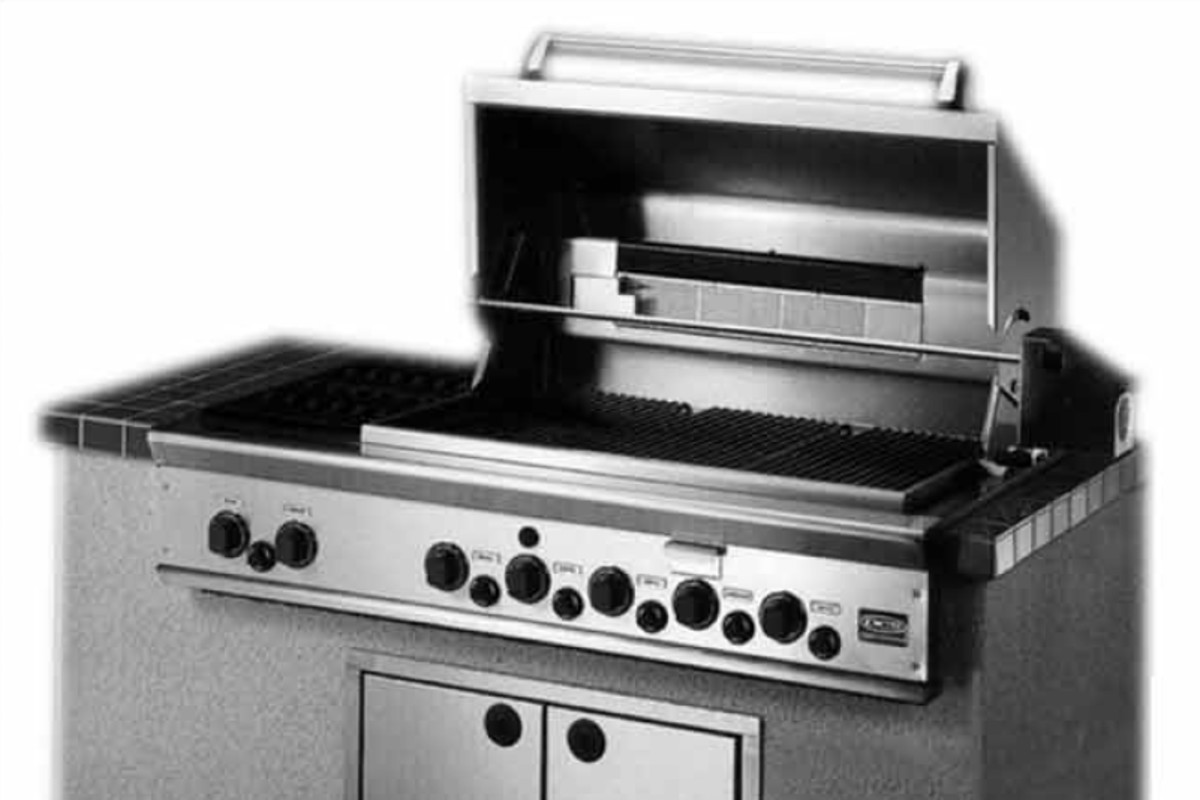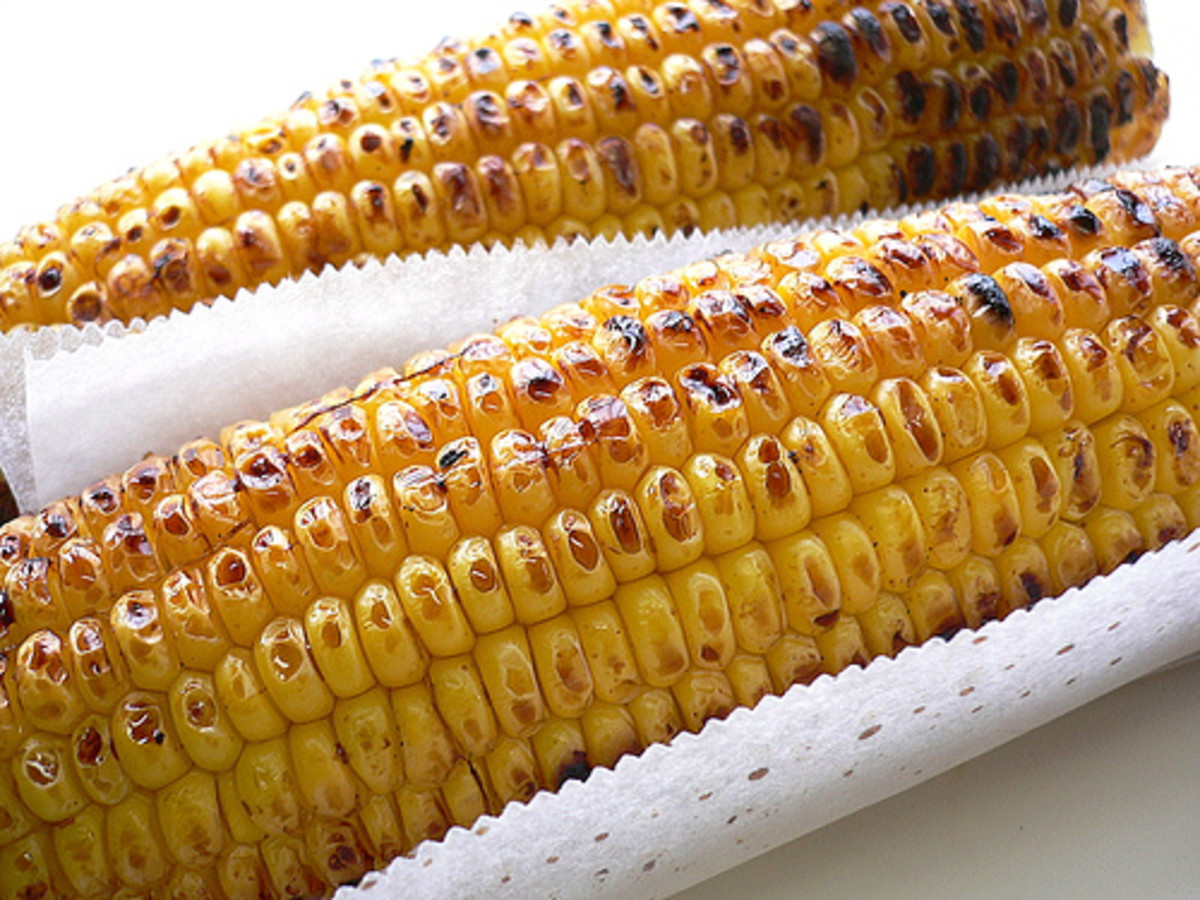Summer Grilling - Part Four - Tools and Gadgets
Tools for Better Grilling
Revised: February 3, 2014
This article deals with the tools commonly required (or marketed) for outdoor grilling. We don't concern ourselves here with the type of fire, gas or charcoal, you may use for cooking; only the tools that will aid you in the process.
As you might imagine, grill tools are distinguished from other common kitchen tools by their long handles. This is a good thing.
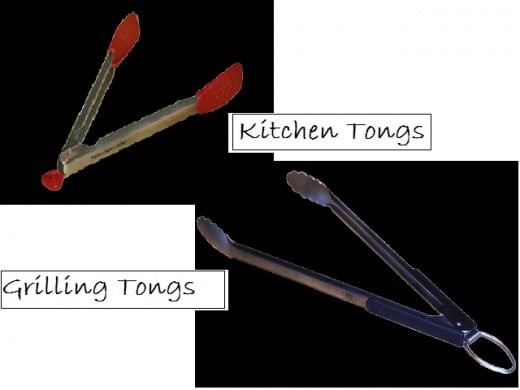
The Essentials
The most important consideration in selecting grilling tools is your safety; you absolutely want to keep your hands a respectable distance from the heat source. After all, you are attempting to cook a meal not your hands. Besides, the aroma of singed hair tends to put your guest off a bit.
For this reason grilling tools look very similar to most other kitchen tools with the exception that the handles are roughly twice as long as those you'd find in the home.
The Bare Minimum
There are four tools that should be considered the "bare minimum" for grilling. These are tongs, spatula, fork and a wire brush.
Tongs
Tongs are an excellent tool for picking up and moving almost any grilled item. Food items can be anything from steak to whole bell pepper to ears of corn. The best tongs will be long handled, spring loaded and designed for easy cleaning. Additionally, since it's quite possible the tongs will be in the fire for extended periods, it is often good if the tong handle has wooden (or plastic) grips to act as insulation from the heated metal. Your tongs should also be easy to clean.
Spatula
Though you can pick up ground meat items with tongs, it is a risky proposition. Even the best tongs do not insure your minced meat item won't fall apart during handling. For items that are flat and composed of minced material, the spatula is the tool of choice. As with the tongs, the spatula should have a nice long handle, have a angled edge (at the front or front and side), and be easy to clean.
Fork
Some items you'll grill will simply be too large to handle with tongs or spatula. A roast, rack of ribs, or lamb shank are good examples. For items this large and bulky a fork is the best way to go. As with the tong and spatula above, the fork should have a long handle, have at least two tines, and be easy to clean.
Wire Brush
A long handled wire brush is essential for preparing the grill just prior to cooking on it.
Though stainless steel wire brushes are the most common, I heartily recommend a brass brush. The reason is simple. When the grill surface is prepared by first brushing and then oiling the grating, you do not want to remove the "seasoning" created by the baked on oil from prior cooking sessions. Steel is too hard and efficient; the softness of brass will help you retain the char you've worked so hard to impart to your grill.
A stainless brush, though long lasting and efficient, is much more likely to remove this coating. Brass is a softer material and is less likely to remove the essential seasoning. Granted, any brush will remove that coating if too much pressure is applied or if the grill grating is brushed for an extended period of time, but your aim should be to knock off the baked on food particles and no more. After all, you don't want your food sticking to the grill and that char helps prevent that.
Cleaning
Good food safety requires that food be placed on the grill with a long handled tool. At least until you are experienced enough to do this bare handed. For that reason the tool used to place the food is often the very same tool used to remove the cooked food.
This means the tool should be completely washed and dried before using it to remove food, otherwise, your chances of contaminating the cooked food with bloody bacteria are high.
Desired Tools
Though the above four tools are the bare essentials, you may also want to expand your grilling tool chest to include some tools for additional safety, variety, or specialized cooking situations.
For example one or more grill mitts are good items to have. Pot holders, those thickened cloth squares so common in the kitchen, are just too easy to drop or lose control of around a grill. There are few things more embarrassing than trying to recover your flaming pot-holder with a pair of tongs while entertaining your guests.
If you are cooking steaks or other slabs of meat you don't have to use tongs or a fork; you can also use a meat turning hook. These are amazingly simple and very efficient.
Additionally, if you are cooking fish fillets you may want to mitigate the risk of the fish falling through the grating as you try to turn them. A good tool for cooking fish over and open fire is the grilling basket; that or a small plank.
All of these individual items are under twenty dollars apiece and some, once you start using them, will become indispensable.
Grill Mitts
To be honest, you can probably use the oven mitt from your kitchen. It has the same basic design requirement as a grill mitt; it covers your hand and part of your forearm and provides some insulation between your bare hand and the fire. The difference is that grill mitts tend to have a bigger gauntlet which covers more of your forearm. Not a bad idea if you don't like the smell of burning hair.
I've known welders who use their welding gloves and I know of a competitive bar-b-que chef who uses nothing more than leather work gloves. In short, specialized mitts are not required, as long as you can put something between your valuable hands and the cooking surface you are really "good to go." The key here is that whatever type of glove you use should allow you to use your thumb and (at least) your forefinger.
Turning Hook
A turning hook is basically a specialized one-tine fork. I have one and use it often when cooking steaks of almost any size. As simple a tool as this is there are a number of reasons I prefer this over a fork:
- It leaves one hole instead of two or more
- A flip of the wrist turns the steak; a more complex maneuver is required of a fork
- It is very easy to clean
- It is extremely fast
This last is an important consideration of you are careful of cooking time with an eye toward consistency.
Grill Basket
Originally designed to "corral" fish this item is a "must have" if you are cooking small vegetables or other items that could possibly fall through the grate into the fire.
As a grill master your aim is to be able to cook anything over an open fire.
When choosing a basket, you want to choose carefully. If it has too much space inside your fish will flop around and potentially fall part in the basket. If it is too "tight" then you won't be able to grill jalapeno peppers, cherry tomatoes (why not?) or other small items.
Steve Raichlen, acclaimed author and grill chef, has come up with a clever solution (third item right); a grill basket that self adjusts.
The main problem with grill baskets is cleaning. A solution is to run it through your dishwasher or clean it over the fire and lightly wire brush it.
Charcoal Chimney
I talk about this item often. It is "environmentally friendly," of course, but that's not why I favor it. In truth it is a much faster (and consistent) way to get your charcoal brickettes started.
Most people I know still use charcoal lighter fluid to start their fires. I'm not sure why; I know I was one of them for a very long time.
Maybe it's the fact that you see flames shooting off or your coals and that provides some assurance that you are going to get those coals started. Maybe it's just the presence of fire that makes lighting coals this way attractive in some primal way.
But, it is a very inefficient way to start a fire. Worse it pumps all sorts of unburned hydrocarbons into the air and you can't help but notice the unmistakable fumes of lighter fuel lingering in the air. None of that is attractive to me and though I like the smell of fuels, I don't like that smell on my steaks, fish, or vegetables.
It took years of listening to my brother expound on the benefits of a charcoal chimney before I actually bought one and tried it. I'll never go back to lighter fluid; never!
The benefits of a charcoal chimney are:
- No charcoal lighting fluid is required; only a small section of newspaper
- The briquettes or lump charcoal starts faster in a chimney; much faster
- There are no fuel fumes
- The chimney pays for itself pretty quickly
The main reasons I like a chimney are the lack of fumes and the fast (very fast) lighting times. But there are other reasons I like them.
Charcoal lighter fluid runs about five bucks a bottle (highway robbery if you ask me) and a chimney costs about fifteen.
The chimney becomes the cheaper alternative pretty quickly. With a long handle and a heat shield it is as safe to handle (if not safer) than trying to light a pile of fuel soaked coals without burning yourself. Modern newspaper is made from recycled and/or specifically grown wood so its a better for the environment. Also, the ink now used for printing is soy based which means no volatile organic compounds wafting into the air. Very little paper is used to start a fire; one half sheet of newspaper is all it takes. Finally, the lack of liquid fuel and the new low VOC inks mean you are pumping a lot less pollution into the air when you grill cook. It also means your grilled food doesn't end up smelling like a refinery.
Tools You Can Really Do Without
Grilling is such a popular pass-time that some manufacturers have brought items to market, specifically for grilling, that can really be passed up. These vendors are counting on your grilling dedication and the "wow" factor. Safe your money (and sanity) as pass these by.
Most of these items are designed mainly to impress guests. But lets be honest here, these things have an impression factor of about two weeks. Kind of like that cool looking toy you got for Christmas as a kid; as soon as you figured out that it was lame you never touched it again.
Skewers
Specialized kabob skewers are a prime example. Why pay, on average, two and a half dollars per skewer on stainless steel when you can buy a package of one hundred bamboo skewers for a cent and a half each?
Skewer Alternative
Bamboo skewers can be cleaned and reused, but at a cent each they can be tossed out too. Bamboo is biodegradable as well; stainless steel not so much.
Boxed Sets
The boxed tool set is also one of those items you see marketed pretty often, but do you really need to make a presentation of your tool kit to visiting guests? Let me put this another way, if the tools are so nice that they need their own special box are you really going to want to mess them up using them? I think you get my point. There's another problem with boxed sets; they often include one or two tools that are perfectly designed, but another two, cut down to fit in the box, that are almost totally useless.
Boxed Set Alternative
Get the tools that 1) do the best job and then 2) look nice doing it. Who cares if they match? The real point is to have grilling tools that do the best job possible while keeping you a respectable distance from the fire.
Woks, Perforated Pans, Etc.
Grill woks are also showing up. This is really a silly idea if you ask me. What is the point of a perforated wok? If you want to use a wok on your grill go right ahead, you certainly don't want to use one with holes in the bottom; what's the point? Wok cooking requires oils and sauces; those things are not going to stay in a wok with holes in it. Additionally, if your fire is hot enough, that wok will work just fine outdoors as well as indoors.
Weights, Planks and Baskets
Grill weights, corn baskets, and grilling planks. These are all really cute ideas, but you don't need specialized "just for the grill" tools. Any weighted item will hold food down as long as it is fire safe and flat. Imagine the "cool factor" of finding an old solid cast iron clothes iron.
What is the point of grilling corn if you need to put it in a basket to do it? Seems to me the corn basket defeats the purpose of grilling corn in the first place by depriving you of those lovely grill marks.
Any hardware store worth a visit will have cedar or hardwood planking. A cedar shingle will do just as good a job as a "store bought" plank marketed just for the grill.
Long Handled Basting Brushes
This really isn't that silly an item, but I never use one. If I need to brush my grilled items I buy a cheap bristle brush purposely to use it once and throw it away. I use the brush while wearing a grill mitt.
The reason is a brush is a perfect repository for bacteria and they are very hard to clean. In fact the best way to clean a basting brush is in the dishwasher and if you do that it might last five cycles at most.
So why buy a very hard to clean little used grill brush that could potentially poison your guests?
Wrapping Up
Some of the tools you need for good grilling really are essential, but there really aren't that many. Basically tongs, spatula, fork and a wire brush are all you really need.
A basket or perforated tray is nice if you are grilling small items or fish, but consider using heavy aluminum foil instead. Foil will keep the food from going through the grate and it's much easier to clean (toss it or recycle it) than a specialized tool.
When purchasing items for grill cooking or just browsing the aisles of your hardware or grill store try to imagine what you already own that can be used instead. Re-purposing kitchen tools is allowed.
Master grilling does not require as many tools as you'd find in your kitchen. Better still some of the items you already own can be taken outdoors and used there.
Disclaimer
The author was not compensated in any way, either monetarily, with discounts, or freebies by any of the companies mentioned.
Though the author does make a small profit for the word count of this article none of that comes directly from the manufacturers mentioned. The author also stands to make a small profit from advertising attached to this article.
The author has no control over either the advertising or the contents of those ads.

